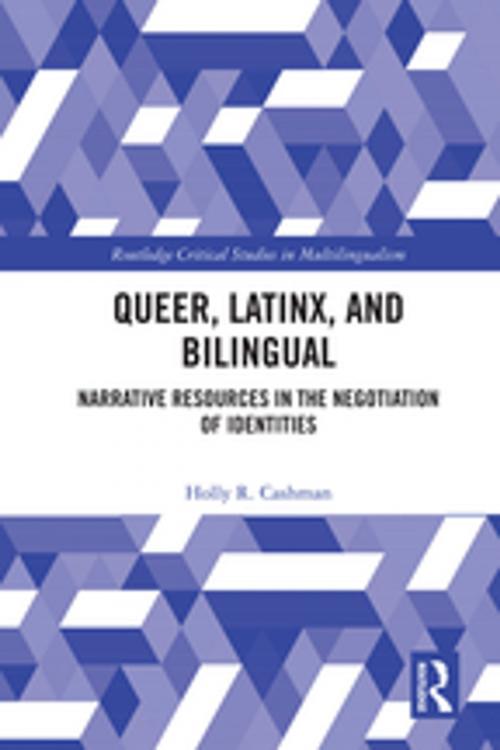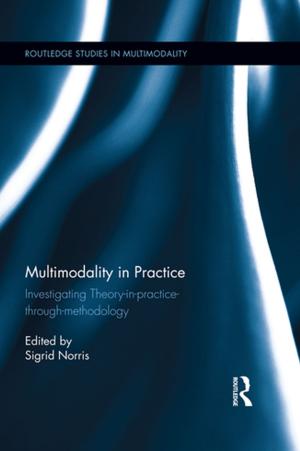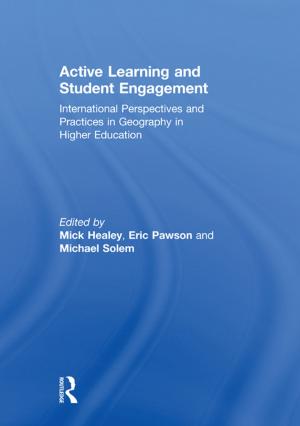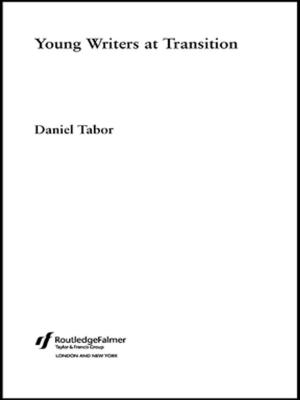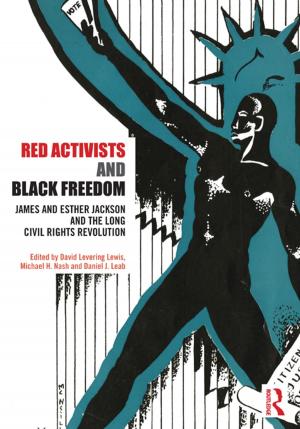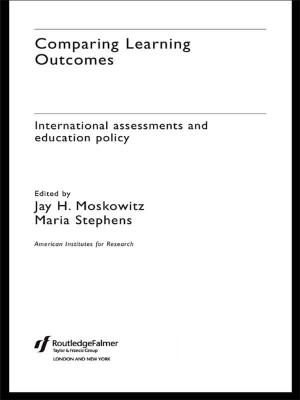Queer, Latinx, and Bilingual
Narrative Resources in the Negotiation of Identities
Nonfiction, Social & Cultural Studies, Social Science, Gender Studies, Gay Studies, Reference & Language, Language Arts, Linguistics, Cultural Studies, Ethnic Studies| Author: | Holly Cashman | ISBN: | 9781317812029 |
| Publisher: | Taylor and Francis | Publication: | November 10, 2017 |
| Imprint: | Routledge | Language: | English |
| Author: | Holly Cashman |
| ISBN: | 9781317812029 |
| Publisher: | Taylor and Francis |
| Publication: | November 10, 2017 |
| Imprint: | Routledge |
| Language: | English |
Shortlisted for the 2018 BAAL Book Prize
This book is a sociolinguistic ethnography of LGBT Mexicans/Latinxs in Phoenix, Arizona, a major metropolitan area in the U.S. Southwest. The main focus of the book is to examine participants’ conceptions of their ethnic and sexual identities and how identities influence (and are influenced by) language practices. This book explores the intersubjective construction and negotiation of identities among queer Mexicans/Latinxs, paying attention to how identities are co-constructed in the interview setting in coming out narratives and in narratives of silence. The book destabilizes the dominant narrative on language maintenance and shift in sociolinguistics, much of which relies on a (heterosexual) family-based model of intergenerational language transmission, by bringing those individuals often at the margin of the family (LGBTQ members) to the center of the analysis. It contributes to the queering of bilingualism and Spanish in the U.S., not only by including a previously unstudied subgroup (LGBTQ people), but also by providing a different lens through which to view the diverse language and identity practices of U.S. Mexicans/Latinxs. This book addresses this exclusion and makes a significant contribution to the study of bilingualism and multilingualism by bringing LGBTQ Latinas/os to the center of the analysis.
Shortlisted for the 2018 BAAL Book Prize
This book is a sociolinguistic ethnography of LGBT Mexicans/Latinxs in Phoenix, Arizona, a major metropolitan area in the U.S. Southwest. The main focus of the book is to examine participants’ conceptions of their ethnic and sexual identities and how identities influence (and are influenced by) language practices. This book explores the intersubjective construction and negotiation of identities among queer Mexicans/Latinxs, paying attention to how identities are co-constructed in the interview setting in coming out narratives and in narratives of silence. The book destabilizes the dominant narrative on language maintenance and shift in sociolinguistics, much of which relies on a (heterosexual) family-based model of intergenerational language transmission, by bringing those individuals often at the margin of the family (LGBTQ members) to the center of the analysis. It contributes to the queering of bilingualism and Spanish in the U.S., not only by including a previously unstudied subgroup (LGBTQ people), but also by providing a different lens through which to view the diverse language and identity practices of U.S. Mexicans/Latinxs. This book addresses this exclusion and makes a significant contribution to the study of bilingualism and multilingualism by bringing LGBTQ Latinas/os to the center of the analysis.
